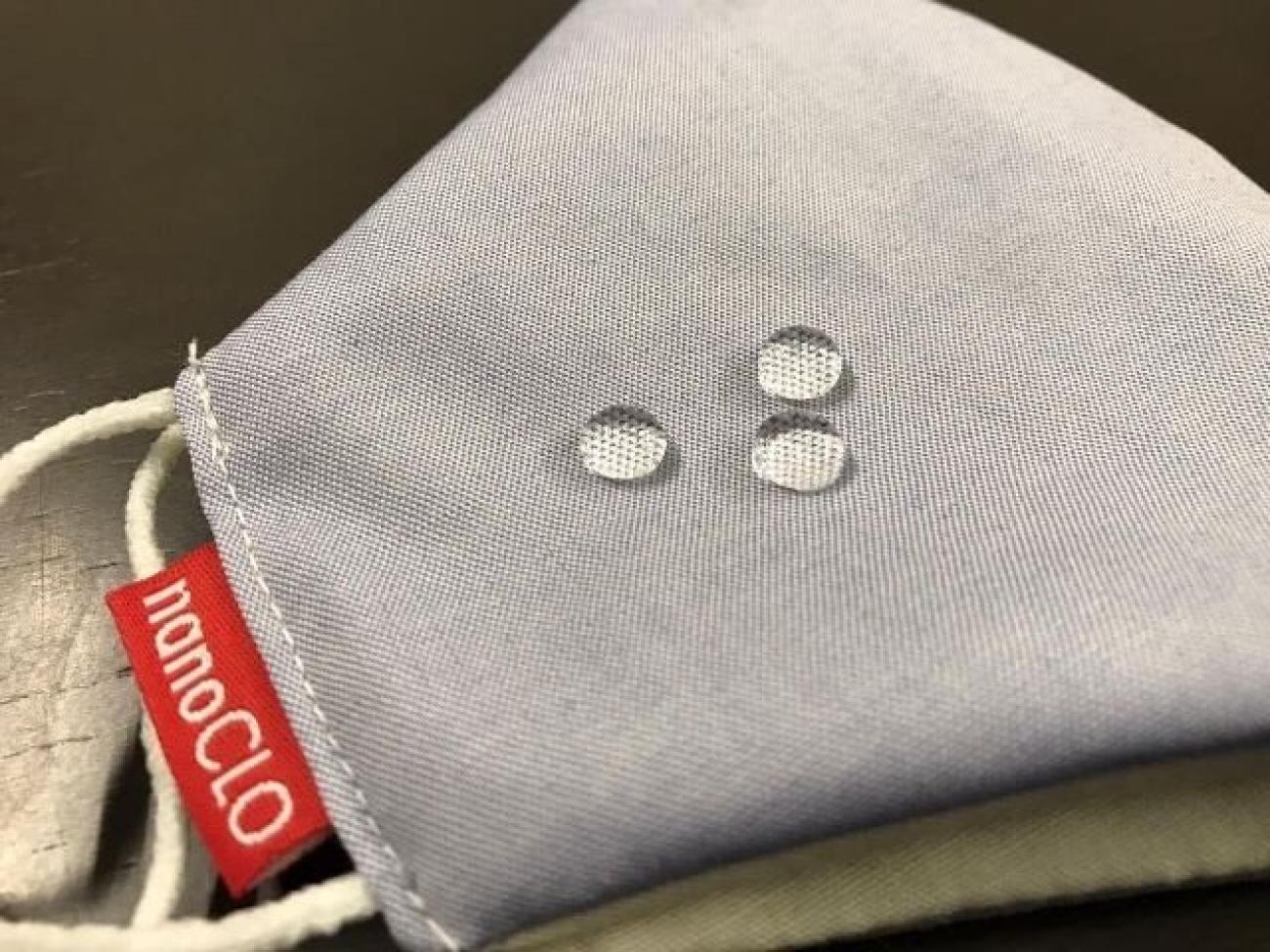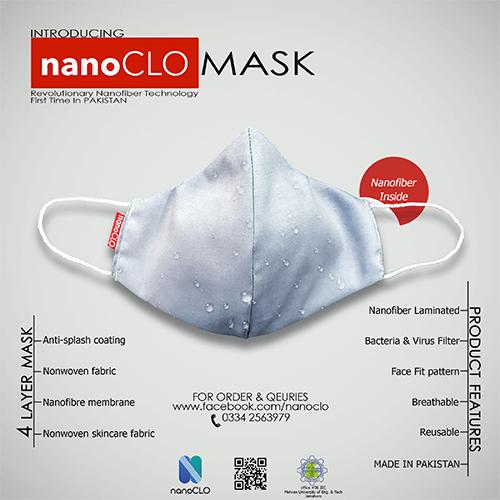Cleantech innovators take on COVID-19

Pakistan: Using nanotechnology to develop face masks in the first line of defence: nano fibre-based N-95 MASK
by Leisa Burrell
The global COVID-19 pandemic has claimed hundreds of thousands of lives around the world. As the pandemic unfolds, there is no doubt that more lives will be lost and there will continue to be wider socio-economic impacts for some time to come.
Government-instigated COVID-responses, such as lockdowns and social distancing measures, have turned a multitude of daily, routine tasks into fraught and, at times, complex interactions, presenting challenges for those businesses that rely on face-to-face interactions, or for those that now require additional protection, such as those in healthcare sectors.
Yet, there are some silver livings; some start-ups and incubators have used these measures and the unique conditions precipitated by COVID-19 as a springboard to develop innovative, commercially viable, localized solutions, allowing them the opportunity to tap into new opportunities and markets.
As countries start to envisage their post-pandemic landscape, with calls for green stimulus and technology, science and innovation-driven solutions growing louder, it is these enterprises that, by addressing immediate real world issues such as the pandemic and the escalating climate change crisis, can be a central catalyst in this recovery.
Pakistan: Using nanotechnology to develop face masks in the first line of defence: nano fibre-based N-95 MASK
As the coronavirus pervades communities around the globe, face masks have emerged as the first line of defence. Though a variety of them are available in the market, those such as the N-95, which is known for its high-level airborne particle filtration capability, are short in supply – besides being expensive.
With this in mind, a team of innovators at NanoClo, which was a semi-finalist of the GCIP Accelerator in 2016, set out to develop a mask that they claim can substitute for the N95 masks. The difference lies in the material being used – and the price. “We are using nanofibre membranes for filtration in the face mask,” said Prof Zeeshan Khatri of NanoClo. Professor Khatri has been researching nanotechnology with his team since 2013. “It can filter up to 95 per cent of bacteria or viruses and prevents potential viral transmission.”
NanoClo, has sold more than 13,000 masks, mostly to health practitioners, in just a month after launching this product. The current daily production capacity is 1,000 masks, though they plan to increase it to 5,000 soon.




